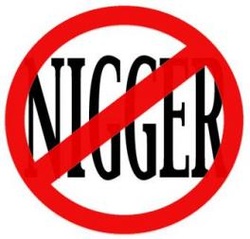
Charlotte Marshall Templeman
Nigger, nigga, I’m Not!!
For some African Americans, the word nigger is one of the most deplorable words of hatred they can be called. The word was used during a time when African Americans fought daily for social equality. During a time of slavery, sit-ins, marches and protest many African Americans endured hearing themselves being called nigger. It was used by the oppressor and it did not matter if the oppressor was an adult or child. African Americans were demeaned by this word for hundreds of years and it still resonates in some as a word that should never be used. It brings back painful memories when a country was divided by segregation, equality for all and freedom under the constitution of the United States.
Today some African Americans, primarily the younger generation, look at the word nigger as just another word. For them they cannot understand or should I say choose to understand the power that the word still possesses today. There is a saying that goes, “it’s not what you’re called that matters but what you answer to that does.” In some instances I can agree with that statement but in some I cannot. Words are a very powerful tool used to hurt, uplift, motivate, demean or encourage someone. We use words to express how we feel to others. When a person is constantly called something negative eventually they will start to believe it. That is why giving positive affirmations and saying nice things to someone can mean the difference between how far a person will go in life or not. So the saying, “sticks and stones will break my bones but names will never hurt me” needs to be “sticks and stones will break my bones and words can definitely hurt me.”
Many young African Americans use the word nigger as a sign of endearment. However the “er” at the end of the word has now changed to an “a”, thus the spelling is now N-I-G-G-A. The sound of the word changes and according to the person using it, so does the meaning. It goes from a word that was meant to reflect hatred to now a word reflecting friendship, loyalty and respect. Although the word is used amongst African Americans with no backlash or ill will, it cannot be used by another person, preferably Caucasian when referring to a person of color. It is at that time the meaning changes and it goes back to when the word was derogatory. My question is can we have it both ways? Why should it be okay for the word to be used amongst us but we take offense when someone else calls us that name? If it walks like a duck and quacks like a duck it is a duck and in my opinion if the word has an “er” or an “a” at the end, it still means the same thing. What begins to happen when we use derogatory words to refer to one another, others believe they can as well. For instance, Gwyneth Paltrow used the word nigger or should I say nigga in her conversation with Jay Z and Beyoncé. What made her feel that comfortable where she felt she could use such language around two African Americans? Did she not know of the history of that word or did she care?
First and foremost we have to care enough about ourselves, our history and what we are called before we expect anyone else to. Respecting the struggle that we endured has to be enough for us to not taint it by using hateful words toward each other. It is important that we build each other up with positive words which encourage us to do our best. Knowing our history as African Americans is great but understanding it is paramount. Being called “nigga” as opposed to “nigger” should have the same ramifications whether it comes from a peer of the same color or a racist shouting it out the window. The world needs to see that we will not tolerate such language used against us by anyone, even our own. Educating our young people to respect themselves and others is the beginning. Teaching them the history and struggles of our people is crucial. Helping them to see that they are descendants of kings and queens and great thinkers is priceless. We are not “niggers” or “niggas” but we are a gifted beautiful people.
 RSS Feed
RSS Feed
